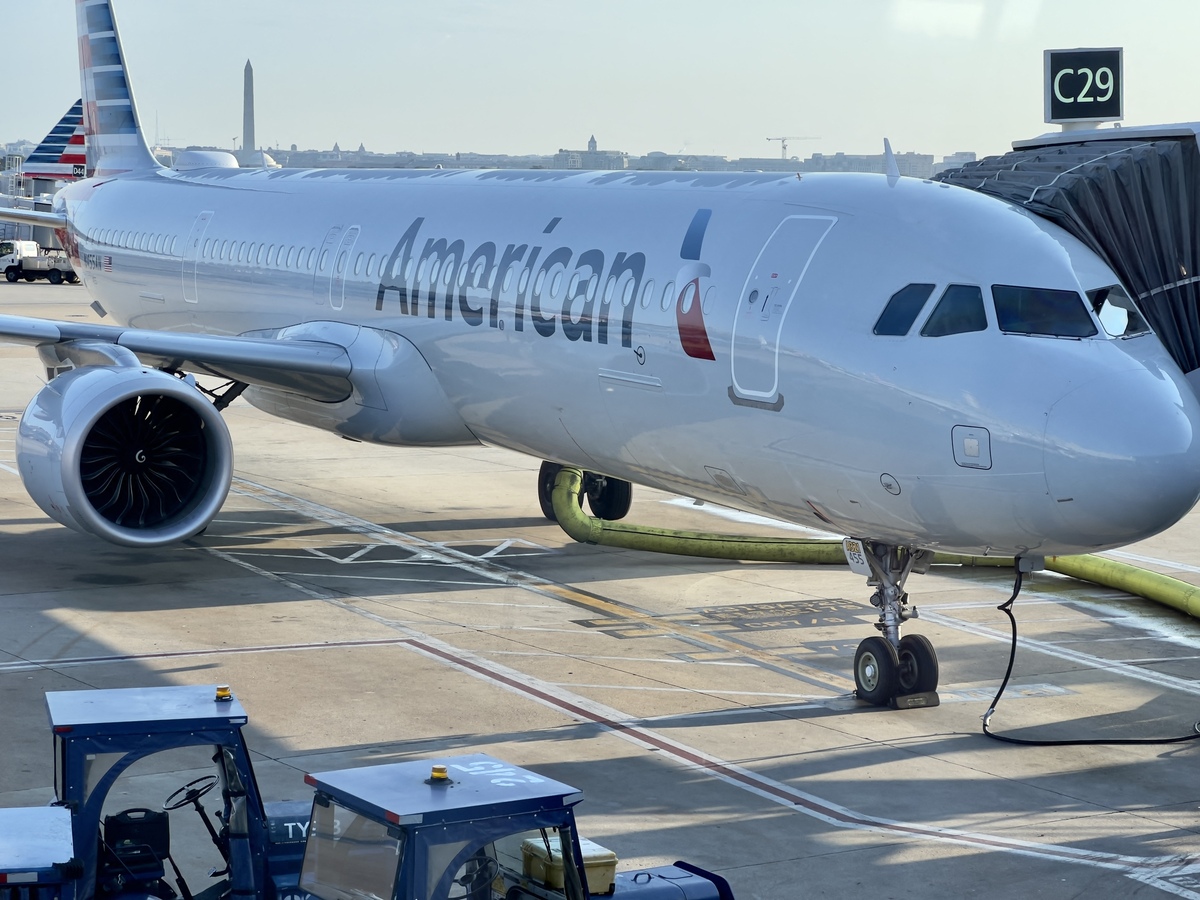
American Airlines’ case brings renewed attention to a controversial travel hack known as skiplogging, or hidden city ticketing.
Daniel Slim/AFP via Getty Images
Hide title
Change the title
Daniel Slim/AFP via Getty Images

American Airlines’ case brings renewed attention to a controversial travel hack known as skiplogging, or hidden city ticketing.
Daniel Slim/AFP via Getty Images
A new lawsuit brought by American Airlines against a controversial ticketing website is bringing renewed attention to “skiplogging,” or “hidden city ticketing” — a practice used by some passengers to get lower fares.

What is skiplogging?
It works like this: Say a traveler wants to travel from New York to Charlotte, NC, but a nonstop route is too expensive. So instead, they book a cheap flight from New York to Denver, with a layover in Charlotte. Instead of flying all the way to Denver, they land in North Carolina and ditch the rest of the ticket.
The practice is not entirely new. “Travel agents have known about hidden city fees for decades, and sometimes travel agents knowingly tell their clients,” says Henry. Harteveldt, a travel analyst at the Atmospheric Research Group.
But the airfare started Increase in late 2021Skiplogging started getting more attention.
A site that helped popularize the Hidden City ticket Skiplagged.com. The website allows users to type in a desired destination and find flights that actually stop on the way to another city (at a lower price) for that destination. The customer departs from the airport in the connecting city and does not complete the second leg travel
Last week, American Airlines Sued Skiplagged v. Federal Court. In its complaint, the US alleges that Skiplagged’s practices are “deceptive and abusive.”
“Deceiving the public into believing that it can somehow issue a ticket that is perfectly valid, despite not having the authority to create and issue the contract on behalf of American. Invalid,” the airline said.
Officials for the site could not be reached for comment. But Skiplagged, which has been around for a decade, has survived past lawsuits from the likes of United Airlines and Orbitz. It boasts of these successes on its site, saying, “Our flights are the cheapest, United He sued us … But we won.”
Why do airlines dislike skiplogging?
Skiplagging is not illegal. But most major airlines, including American, Delta Southwest and United, don’t allow it.
For one, airlines lose money in practice, says Tim Hu, a professor at the University of British Columbia’s Sauder School of Business who co-authored a study on skiplogging last year. For a non-direct flight, “they have a lower price ceiling compared to a direct flight, so they can attract customers.”
When one leaves at the end of the journey, Airlines cannot fill an empty seat. Had it not been booked as part of a multi-stop trip, would have sold for more money.
“They sell that seat with a 95% probability that you show up,” Hu says. “That’s the airline account. So a [big] A loss in the system.”
Plus, failing to board a connecting flight can cause confusion and delays at the gate, Hartveldt says. Airlines will issue “announcements [such as] ‘The paging traveler was John Doe or Jane Doe.’ … The airline doesn’t want to leave people behind.”
What are the risks for avoidant customers?
If an airline finds out what you’re doing, it can cancel your ticket or ban you from flying with it. That’s what reportedly happened recently to a North Carolina teenager who booked an American Airlines flight from Florida to New York, but got off on his Charlotte connection. The boy’s father said The insider That American banned from flying for three years
“If this is done over and over again, [the airline] You’re going to say you owe us,” Hartveldt says. “They might be willing to settle for a certain number of cents on the dollar. Maybe they should collect them all. But airlines can take steps to protect themselves.
There are other drawbacks, he says. Even if your attempt at skiplogging is initially successful, it will only work for a one-way trip. Once the airline realizes you’re not flying to your ticketed destination, it’s almost certain to cancel your return.
Finally, the checked baggage arrives at the ticketed location without your presence. So, let’s take it.